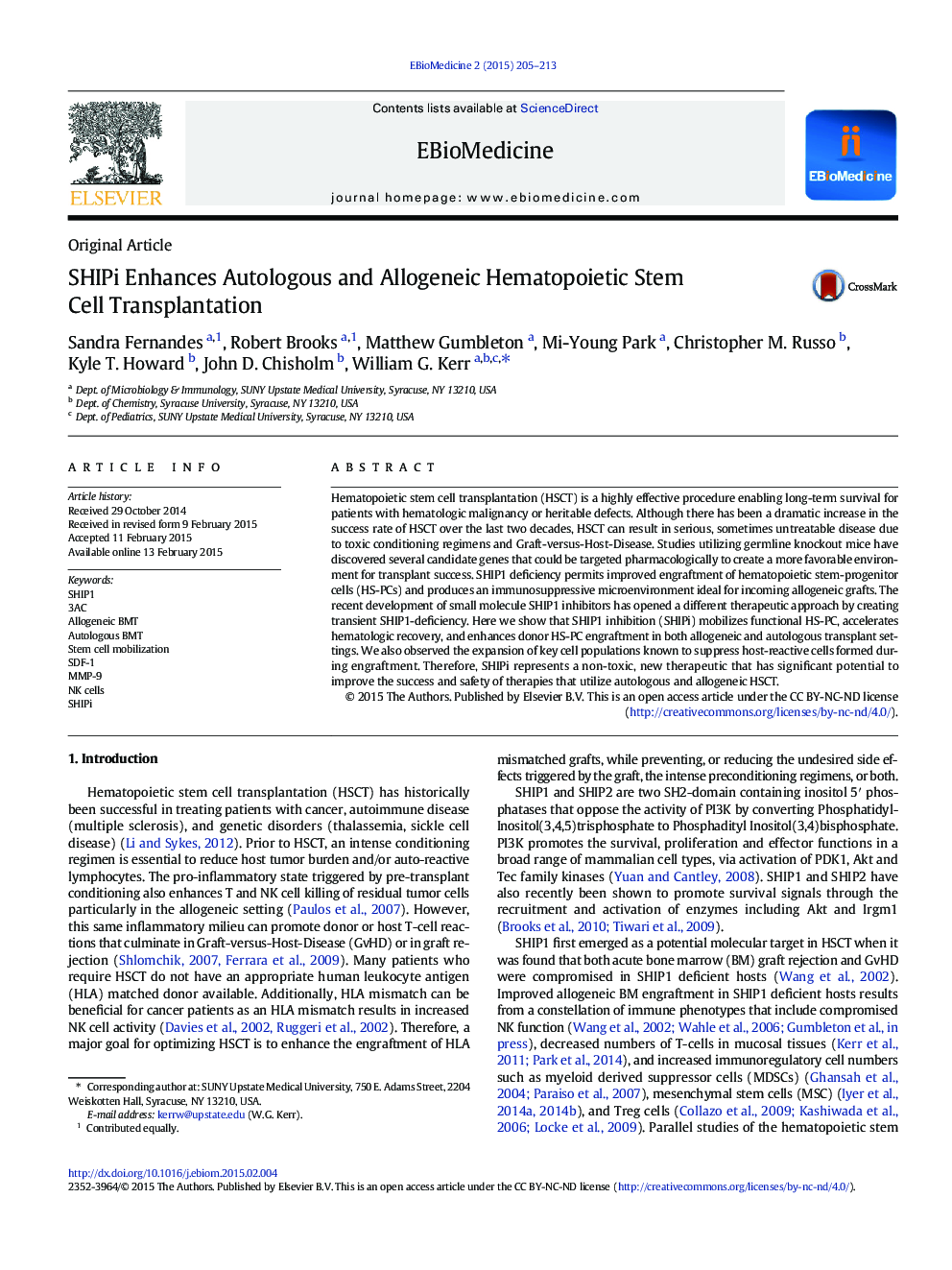| Article ID | Journal | Published Year | Pages | File Type |
|---|---|---|---|---|
| 2121256 | EBioMedicine | 2015 | 9 Pages |
•SHIPi facilitates HS-PC mobilization.•SHIPi facilitates engraftment of autologous BM without myeloablation.•SHIPi enhances engraftment of allogeneic BM without cytotoxic effects on the host.
Hematopoietic stem cell transplantation (HSCT) is a highly effective procedure enabling long-term survival for patients with hematologic malignancy or heritable defects. Although there has been a dramatic increase in the success rate of HSCT over the last two decades, HSCT can result in serious, sometimes untreatable disease due to toxic conditioning regimens and Graft-versus-Host-Disease. Studies utilizing germline knockout mice have discovered several candidate genes that could be targeted pharmacologically to create a more favorable environment for transplant success. SHIP1 deficiency permits improved engraftment of hematopoietic stem-progenitor cells (HS-PCs) and produces an immunosuppressive microenvironment ideal for incoming allogeneic grafts. The recent development of small molecule SHIP1 inhibitors has opened a different therapeutic approach by creating transient SHIP1-deficiency. Here we show that SHIP1 inhibition (SHIPi) mobilizes functional HS-PC, accelerates hematologic recovery, and enhances donor HS-PC engraftment in both allogeneic and autologous transplant settings. We also observed the expansion of key cell populations known to suppress host-reactive cells formed during engraftment. Therefore, SHIPi represents a non-toxic, new therapeutic that has significant potential to improve the success and safety of therapies that utilize autologous and allogeneic HSCT.
